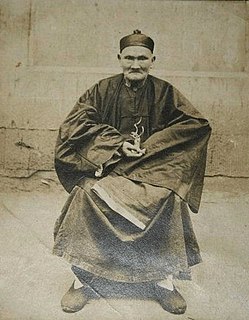A Quote by Friedrich Nietzsche
It is not when truth is dirty, but when it is shallow, that the lover of knowledge is reluctant to step into its waters.
Related Quotes
Before I had studied Zen for thirty years,
I saw mountains as mountains,
and waters as waters.
When I arrived at a more intimate knowledge, I came to the point where I saw that mountains are not mountains,
and waters are not waters.
But now that I have got its very substance
I am at rest.
For it's just that
I see mountains once again as mountains,
and waters once again as waters.
The Greek word for philosopher (philosophos) connotes a distinction from sophos. It signifies the lover of wisdom (knowledge) as distinguished from him who considers himself wise in the possession of knowledge. This meaning of the word still endures: the essence of philosophy is not the possession of the truth but the search for truth. ... Philosophy means to be on the way. Its questions are more essential than its answers, and every answer becomes a new question.
Then may we not fairly plead in reply that our true lover of knowledge naturally strives for truth, and is not content with common opinion, but soars with undimmed and unwearied passion till he grasps the essential nature of things with the mental faculty fitted to do so, that is, with the faculty which is akin to reality, and which approaches and unites with it, and begets intelligence and truth as children, and is only released from travail when it has thus reached knowledge and true life and satisfaction?
All those formal systems, in mathematics and physics and the philosophy of science, which claim to give foundations for certain truth are surely mistaken. I am tempted to say that we do not look for truth, but for knowledge. But I dislike this form of words, for two reasons. First of all, we do look for truth, however we define it, it is what we find that is knowledge. And second, what we fail to find is not truth, but certainty; the nature of truth is exactly the knowledge that we do find.






































